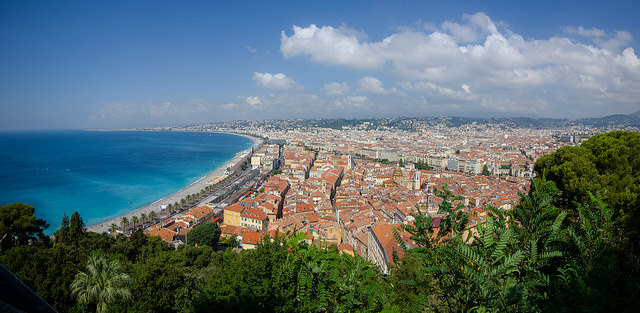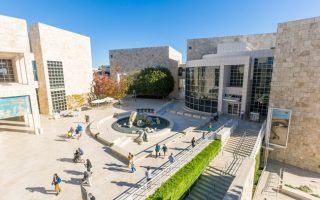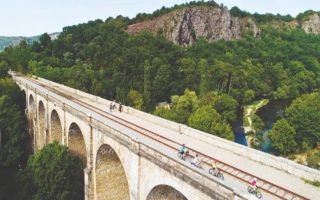Requiem for 2016 Bastille Day in Nice
On Thursday night I was awake late, messaging my French friends who live in or near Nice, where a man had just “weaponized” a truck and killed holiday bystanders, including children. Tragedy begets emails and exchanges that are short, almost like smoke signals: Are you all right? Yes, I am here, safe but sad. Our hearts are with you. Merci, my good friend.
For decades now, I’ve usually stayed at the French Riviera in summertime, but because I am launching a new novel here in the States in August, I switched my visit this year and travelled in May instead. Springtime has its own breathtakingly special loveliness on the Côte d’Azur, but I remember thinking that I was going to miss Bastille Day and the jazz festival.
The French celebrate their national holiday much as we do: with outdoor offerings of food and music on the beach, capped off with a display of fireworks. But there is something especially cozy and genteel about the way they do it: the streets are closed to cars, and barges glide into the harbors and pause at the coastlines, firing off colorful explosives that delight the spectators yet are somehow a bit quieter and more contained than the massive American Fourth-of-July fireworks displays I’ve grown up with.
And there’s nothing quite like the Promenade des Anglais, a long, dignified paved walkway that follows the curve of the Mediterranean shoreline at what’s known as the Bay of Angels. Opposite the promenade are the romantic, grand old Belle Epoque hotels like the Negresco and the Palais de la Méditerranée. The promenade is a great place to walk, cycle, see and be seen.
It was at this Promenade des Anglais where one of my literary heroes, Louisa May Alcott, discovered that she didn’t own a dress that would make her proud enough to parade alongside the other elegant ladies who were showing off their stylish gowns and hats and parasols.
The Promenade was built in 1820 for wealthy English tourists who stayed at the French Riviera in the wintertime, drinking tea and playing cards; and they liked to take healthy walks by the invigorating sea air. But there’s another reason the French built a walkway: the winter had been particularly brutal that year, causing a wave of hungry beggars and vagrants who weren’t especially good for tourism. The construction project was a way of giving desperate, idle men a job.
Perhaps the motto of the French revolution and the declaration of the Rights of Man was still fresh in the minds of the nineteenth-century officials: Liberté, égalité, fraternité. Freedom, equality, brotherhood (sometimes called charity). This is still the oft-repeated slogan of Bastille Day, although on worldwide television you tend to hear more about liberty and not as much about equality and fraternity.
I will return to the South of France soon, and once again walk the Promenade des Anglais. My love for the French Riviera encompasses all its history, which I feel is still present in its layers of time, in its sparkling sea and the canopy of blue sky. This city has suffered countless invasions, plagues and raids by pirates. As a writer I don’t seek to forget the bitter for the better.
In fact the word “Nice” is said to come from the Greek word for “city of victory”. And so I know that the Bay of Angels still belongs to those innocent souls who were there on Thursday celebrating the joy of liberté, égalité, fraternité. They shall not be forgotten.
Photo credit: Nice by Kurt Bauschardt/Flickr
Share to: Facebook Twitter LinkedIn Email
More in nice
Leave a reply
Your email address will not be published. Required fields are marked *






REPLY
REPLY
REPLY
REPLY
REPLY
REPLY